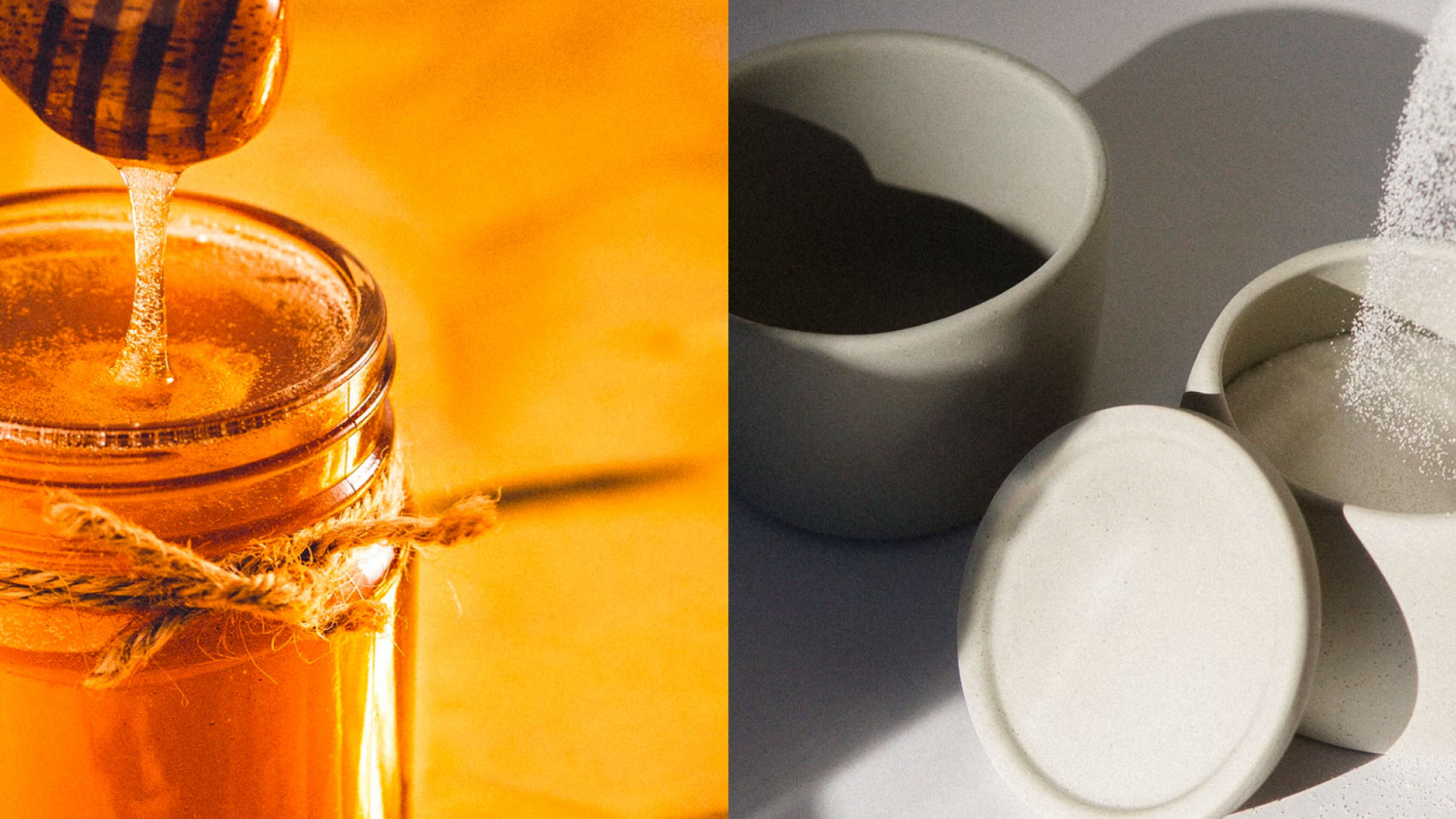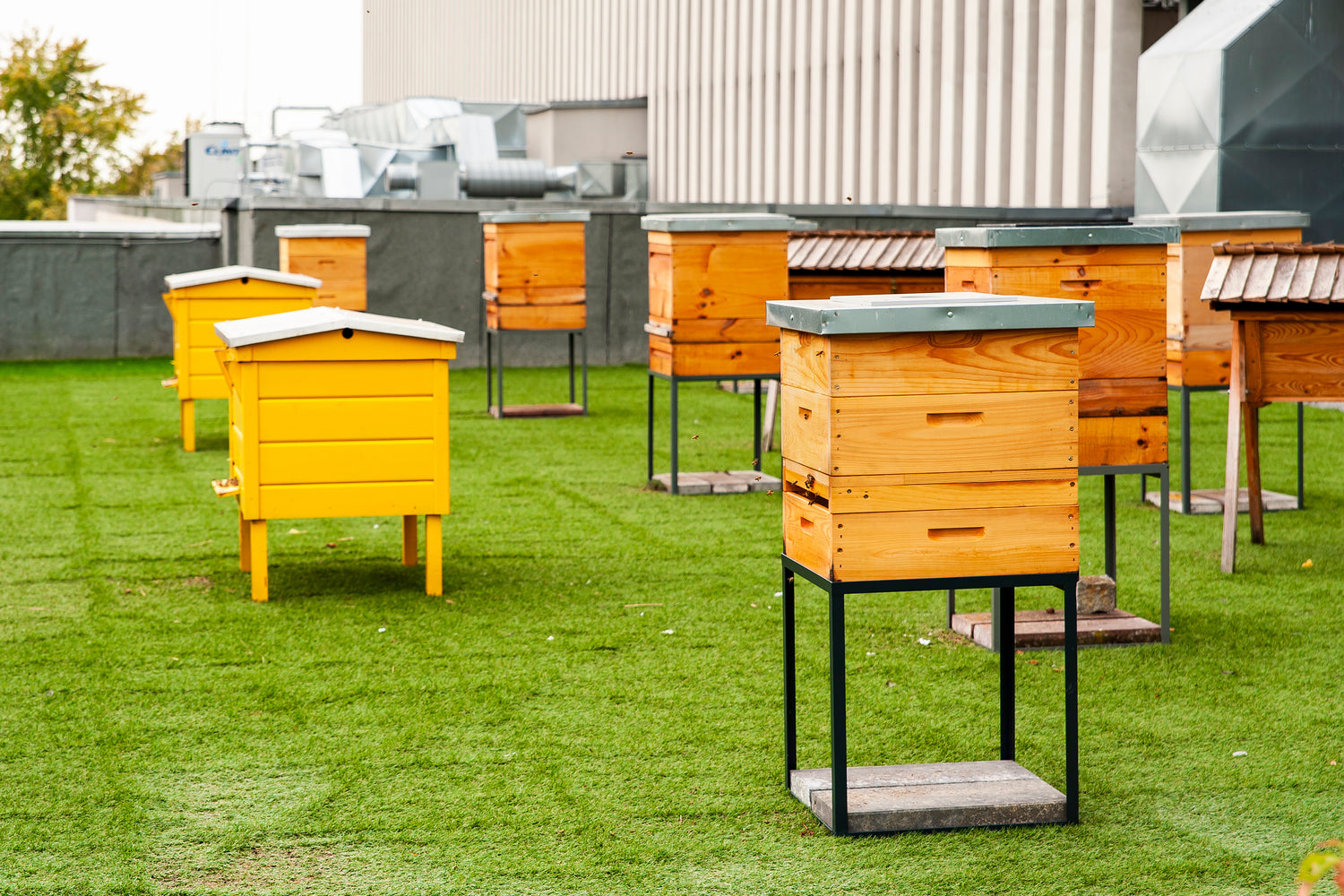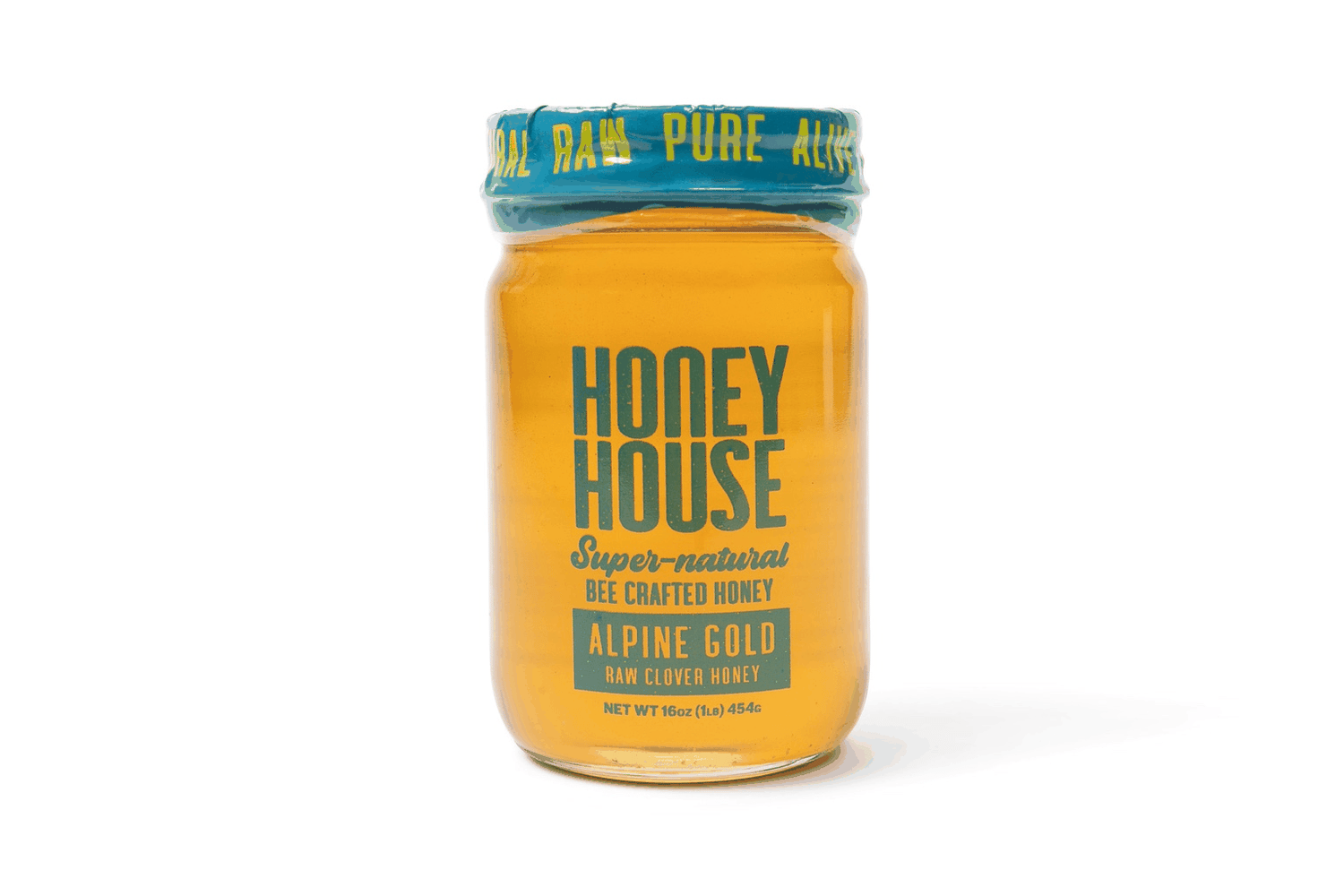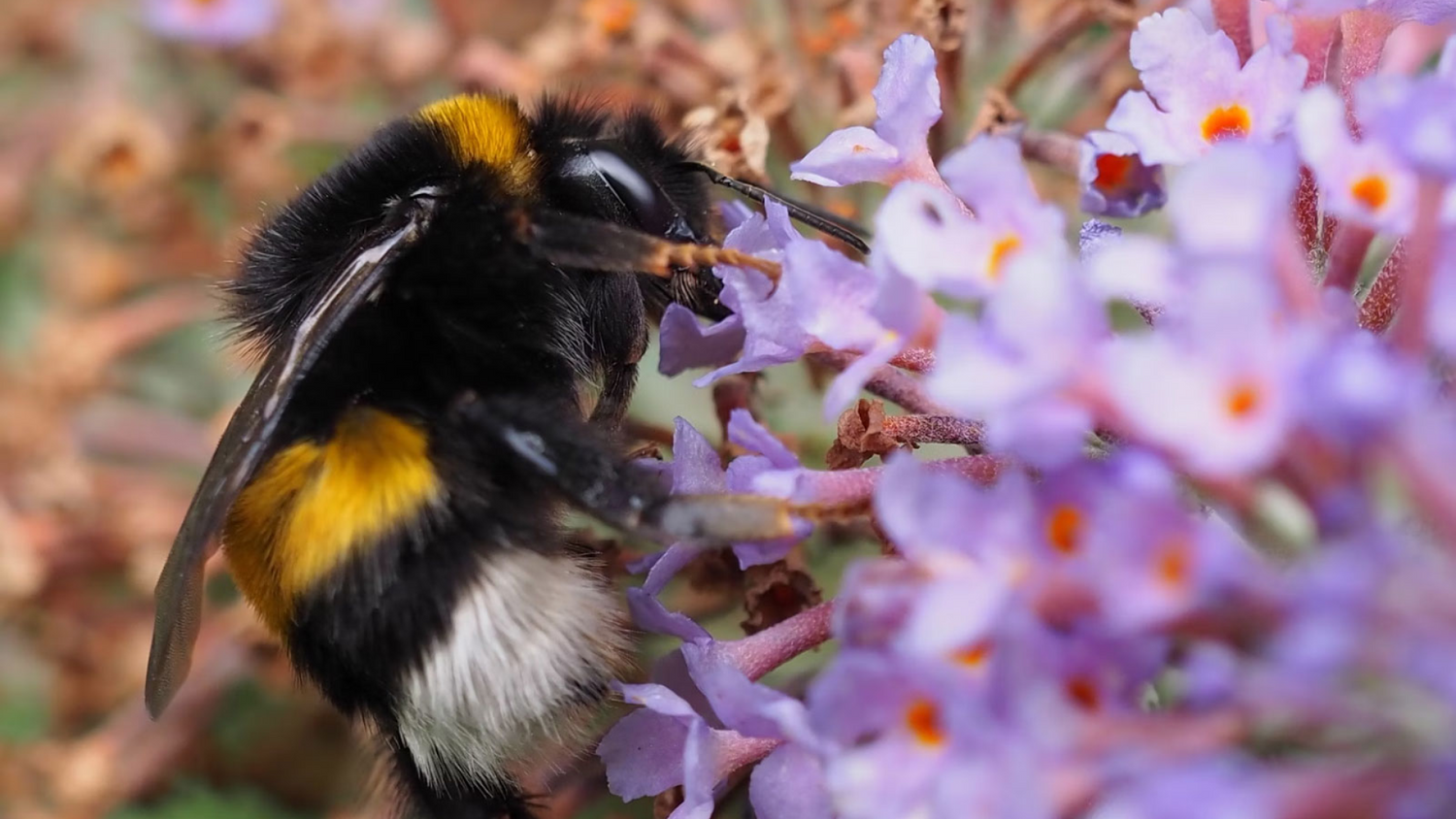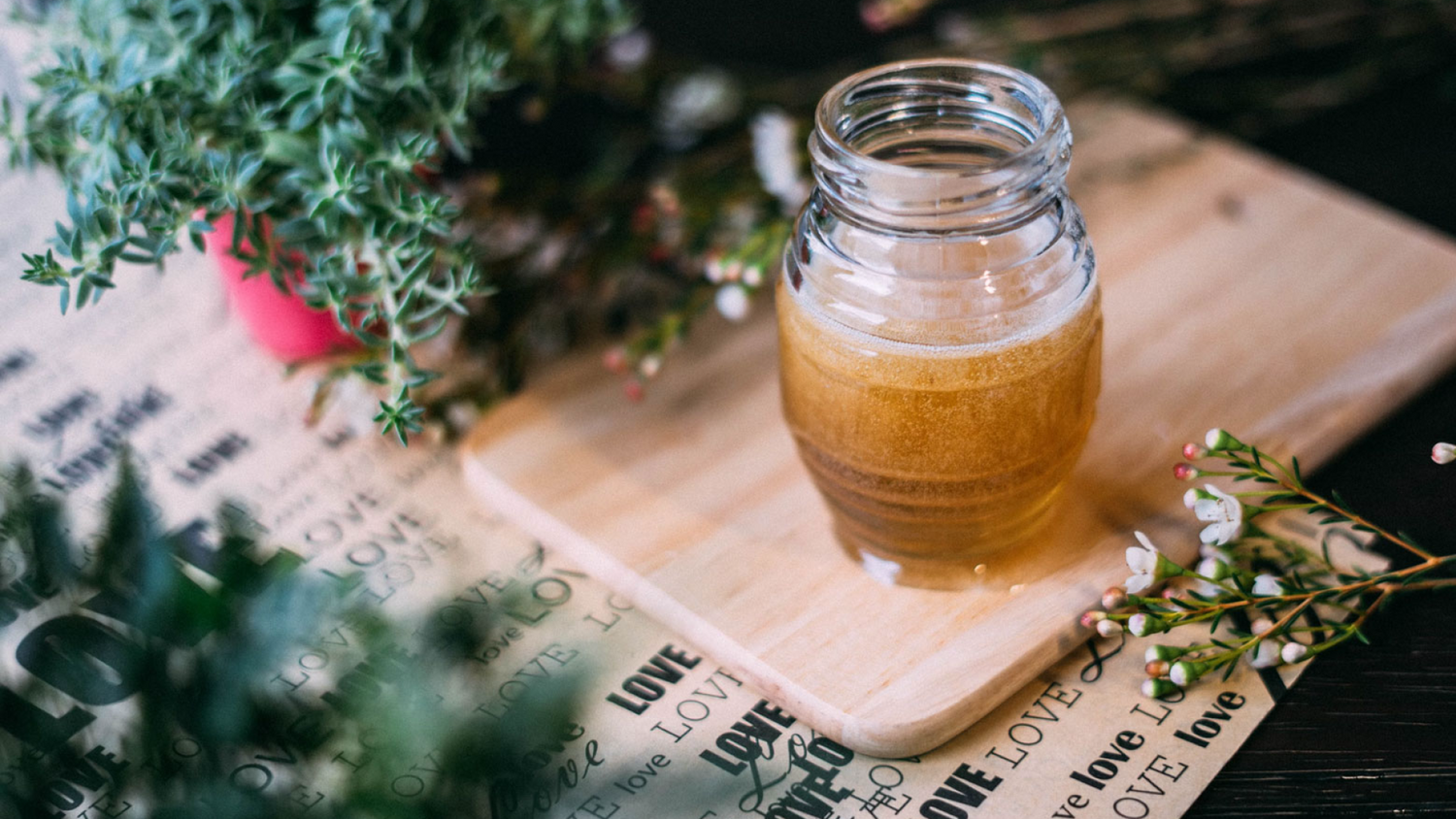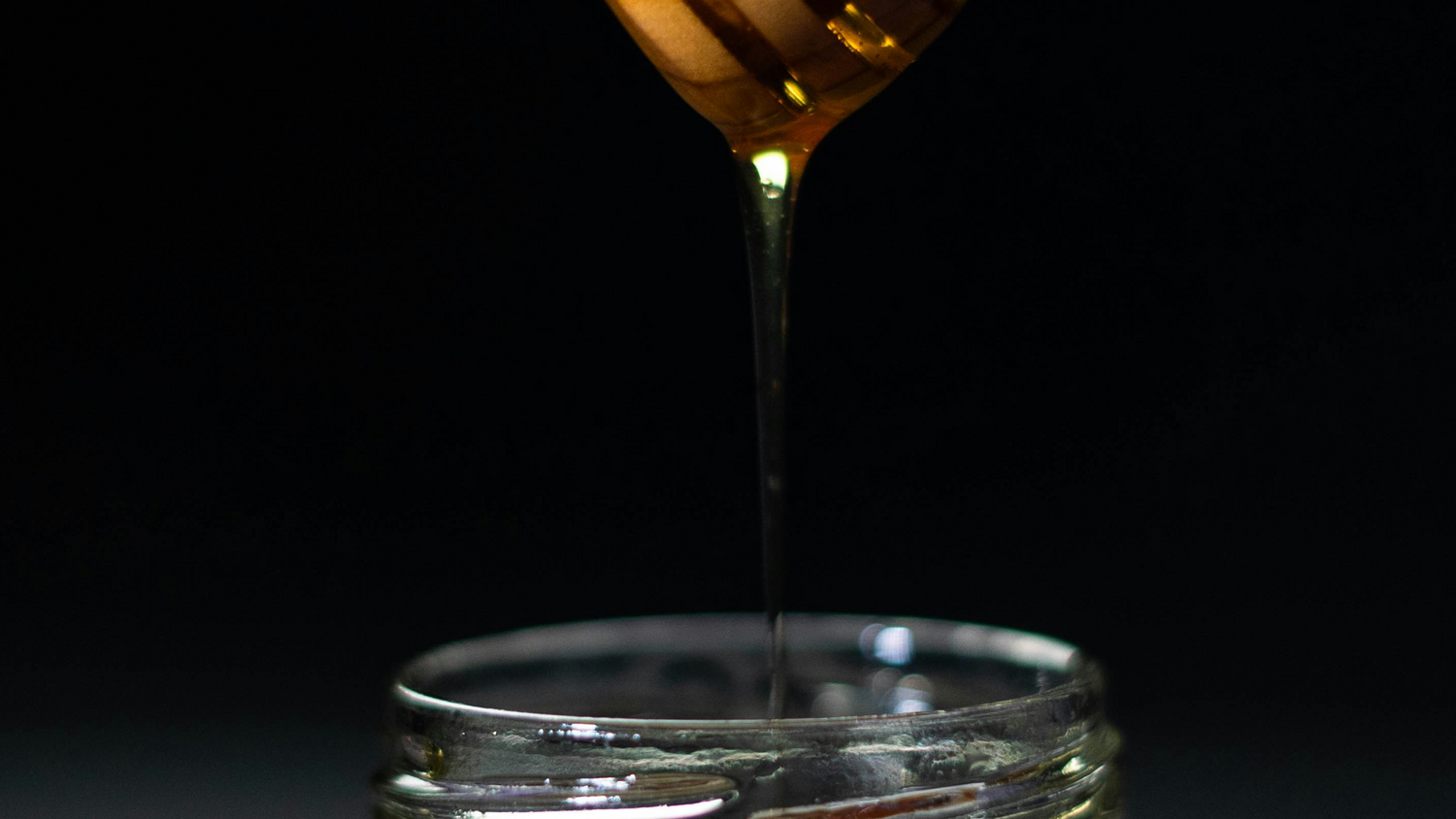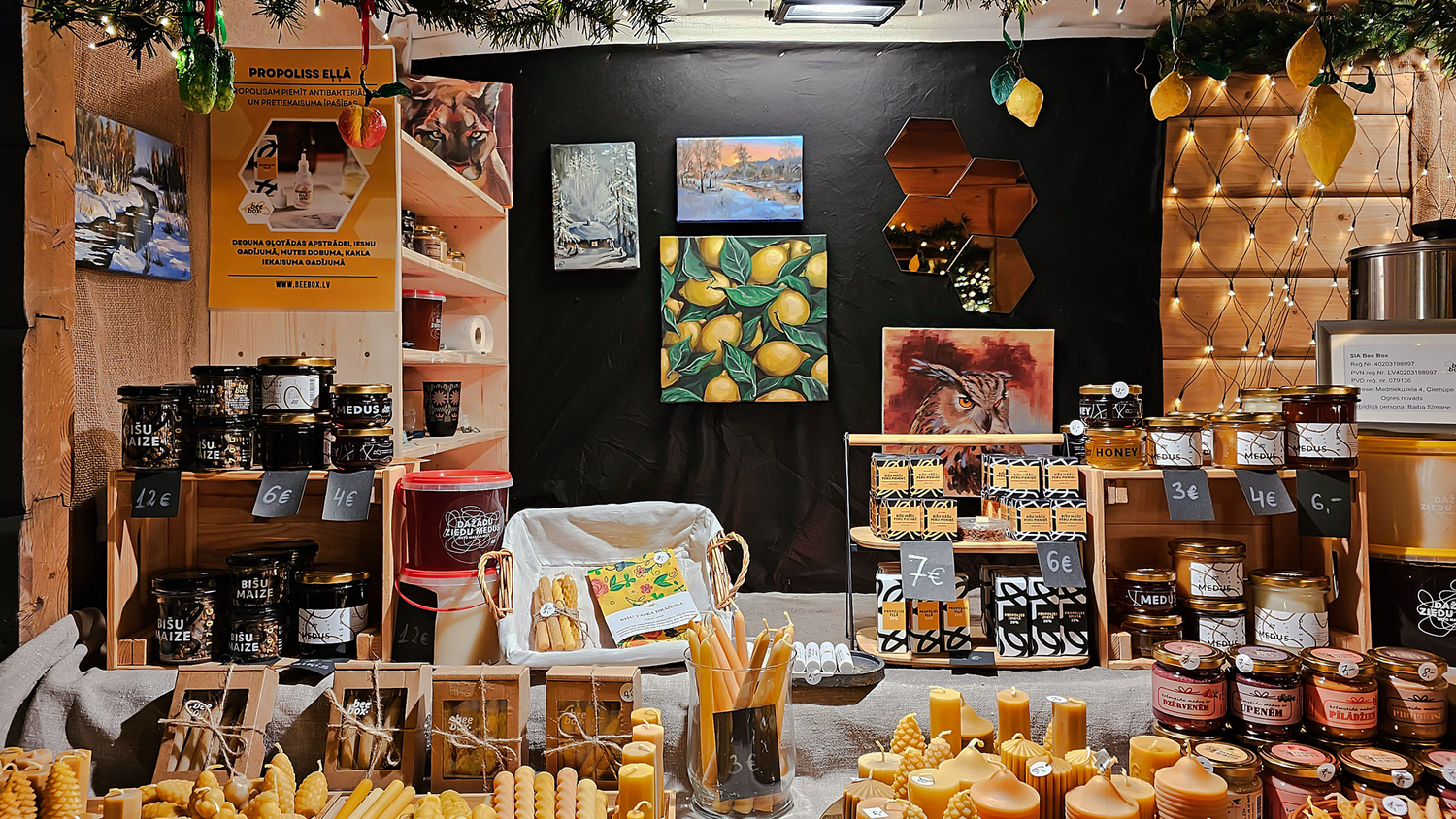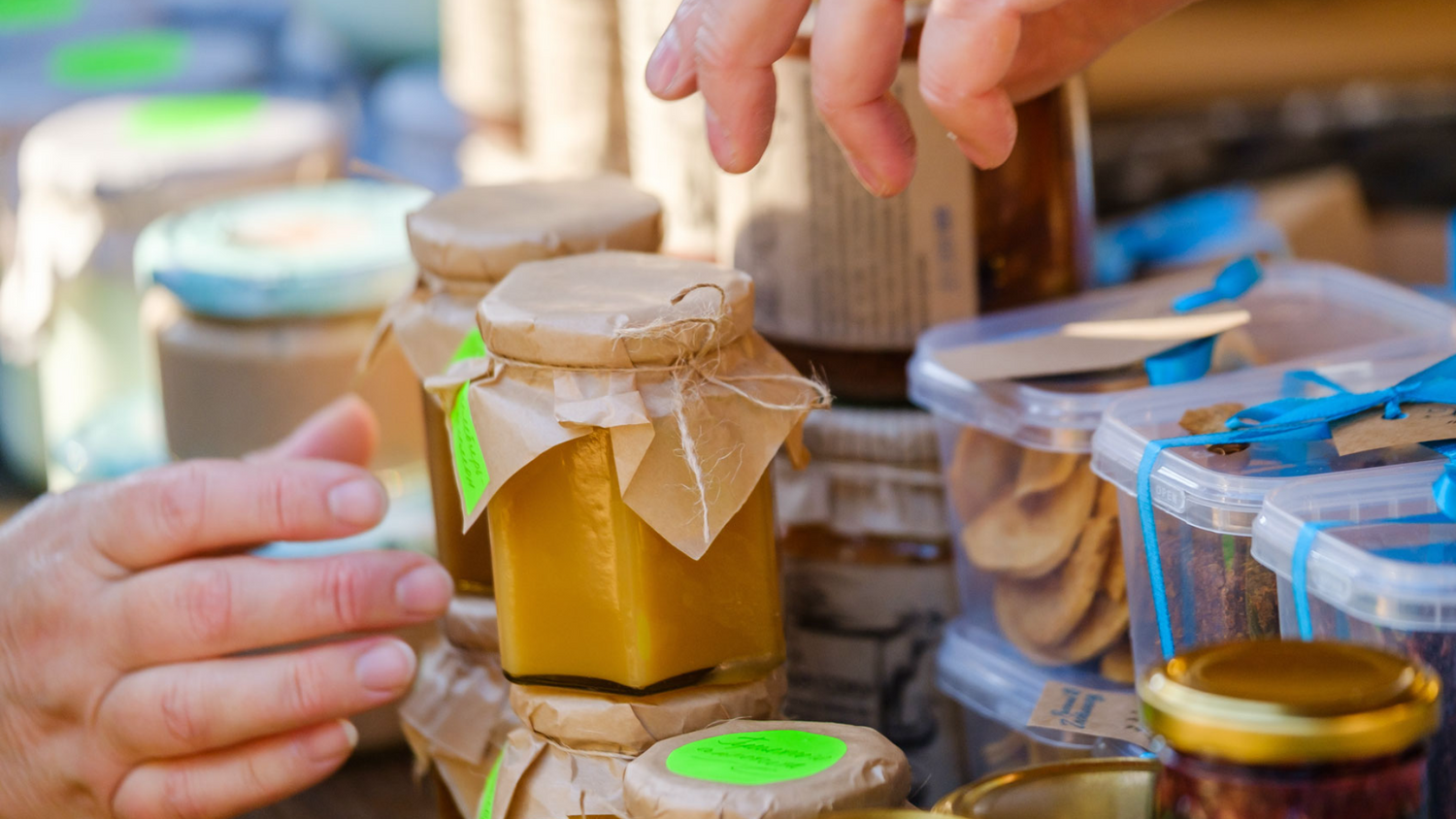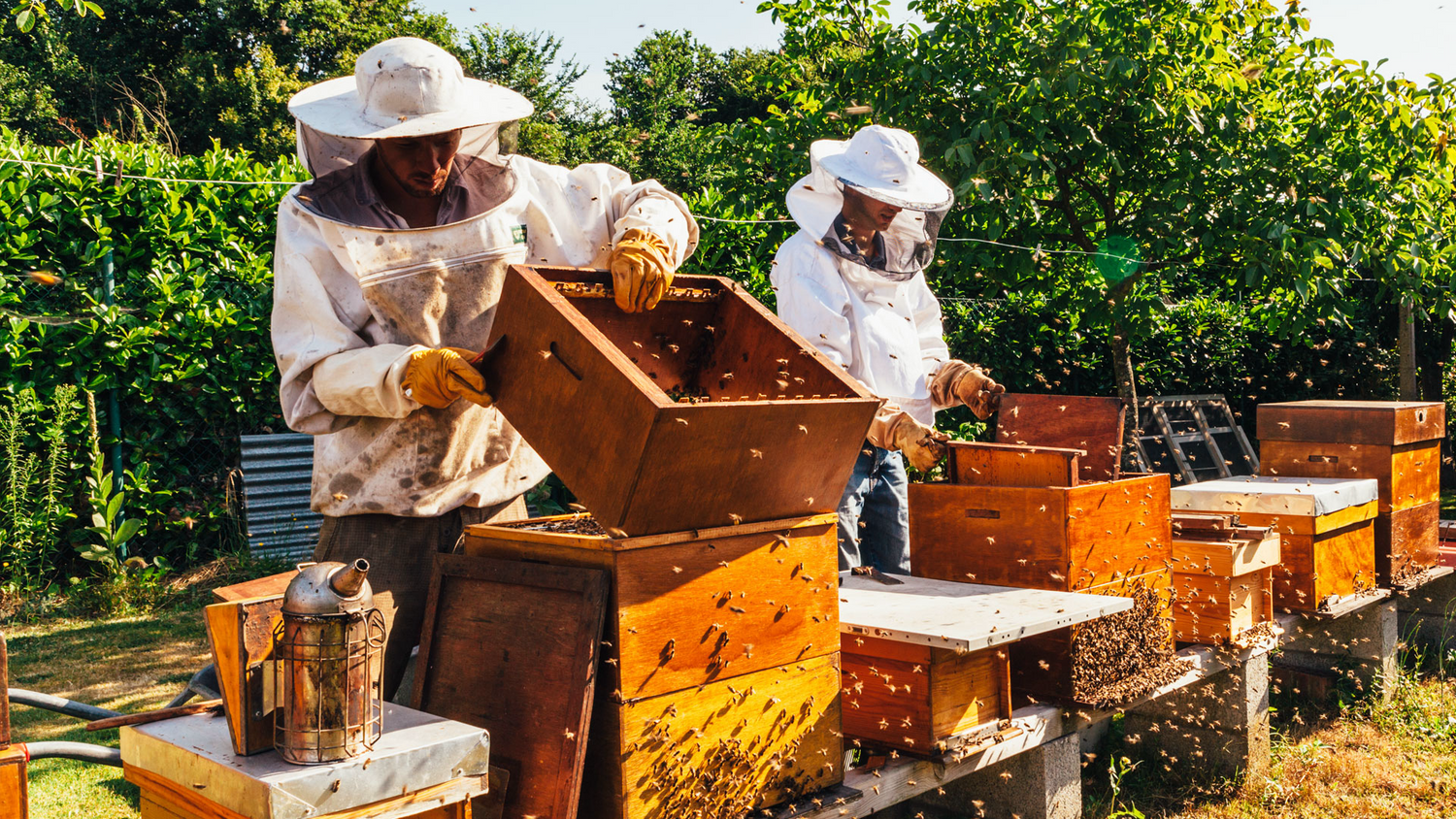What’s up to all of our friends in the community!? Welcome to our “Honey vs. Sugar: A Sweetener Showdown”, where we delve into the nuances of these popular sweeteners. Discover why honey might be a better choice for your health and palate. As we dive in please keep in mind that the intricacies of Beekeeping and honey are vast, and all of the insights we give, we do so to help educate the world regardless of your experience levels in beekeeping! Let’s dive in!
Honey and sugar are both sweet to the taste, there is no doubt about it! With that being said there are definitely differences when it comes to weighing out one vs the other based off of the processing each product goes through.
Let’s explore both products a little bit, and shine some light on the differences of honey vs sugar.
What is Honey?
Honey is a thick substance made by bees from flower nectar. The bees store honey in their hives which will become their source of food during winter. The excess honey they produce is collected by beekeepers and is processed to become a jar of sweetener for cooking and eating. Honey is usually in liquid form and has a clear to dark brown color. Aside from water, honey is composed of sugars, antioxidants, enzymes, minerals, and vitamins.
There are different varieties of honey based on the blooms where the nectar is from. Some of the most common types of honey are manuka honey, buckwheat honey, orange blossom honey, eucalyptus honey, wildflower honey, and alfalfa honey. They all have a distinct color and flavor too.
What is Sugar?
Table sugar is sucrose which is a combination of glucose and fructose. It is a calorie-dense carbohydrate that does not contain any vitamins or nutrients. Sugar goes through a lot of processes to become that refined powder that is used often as a sweetener for foods and drinks. It has a long shelf life, is affordable, and is easily accessible.
Sugar has many types but the most commonly used are white, brown, and raw sugar. Brown sugar is a mixture of white sugar and molasses making it a little better than both white and raw sugar because of some trace nutrients. Raw sugar is just a less-refined white sugar.
Other types of sugar that you can see on grocery shelves are granulated sugar which is used for cooking and baking, powdered sugar for making icing and homemade frosting, and dark brown which has a higher concentration of molasses for a richer flavor.
Because sugar is a carb, it is a good source of fast fuel. It can cause energy to rise and drop sharply. While it contains only 16 calories per teaspoon, eating too much can increase the risk of certain diseases. Sugar is often added in most processed foods so you may not notice if you are consuming too much of it. Not being mindful of sugar consumption can cause weight gain, obesity, and diabetes.
Honey vs Sugar in Production
Between the two types of sweeteners, honey is produced simpler compared to sugar only because most of the processes done to make honey are taken care of by the bees. Beekeepers only have to collect, clean, and bottle honey and it is ready for consumption.
Sugar takes a while to produce with all the washing, cutting, and pressing needed before sugar juice is extracted from the plant material, usually sugar cane. The juice still has to be boiled until it forms sugar crystals. The type of sugar produced will depend on how much processing the sugar crystals are subjected to. It can be granulated if not processed too much, otherwise it can turn into either white or fine powdered sugar.
Now we have an idea of what goes into getting honey in the jar, and sugar in the pouch! Let’s keep moving.
Honey vs Sugar – Which is Healthier?
Although honey and sugar are both carbohydrates and are calorie-dense sweeteners, they differ in both chemical and nutritional values.
Here are 5 reasons why raw honey is better than sugar if you are looking for something to feed your sweet tooth:
Honey tastes sweeter. Honey has a sweeter taste compared to sugar. This means you can use less of it in your food and not sacrifice the amount of sweetness. You consume fewer calories since you are using less sugar in your food. Not only is it more flavorful, but the variety of flavors based off of the botanical source adds a fun twist on the product!
Honey does not spike blood glucose as sugar does. Both honey and sugar are carbohydrates that have the primary sugars fructose and glucose. Sugar, however, has 50% fructose and 50% glucose which makes it 100% sugar. Honey, on the other hand, has only 85% of those sugars and the remaining 15% has water, pollen, and trace nutrients. Between the two, sugar is absorbed faster and can supply a short burst of energy. Honey is absorbed slower and crystallizes at a slower rate so it provides energy longer.
Honey has additional essential nutrients. Sugar has empty calories because it only has fructose and glucose. Other than sugars, honey also has amino acids, enzymes, minerals, and vitamins. These are phytochemicals that can contribute to a healthier immune system.
Honey provides added health benefits. Aside from nutrients that boost the immune system, honey can also suppress cough and relieve sore throat. Raw honey has traces of pollen that help people with seasonal allergies. It is also easier to digest compared to sugar and can help promote a night of better sleep.
Other than the health benefits you get from eating honey, it also provides healing outside of the body. It is a popular choice for treating acne and other skin blemishes. It also makes wound healing faster by keeping the surrounding tissue moist. Some people use it as a hair mask to make hair smooth and silky.
Honey tastes better than sugar. Sugar tastes plain but honey has a more complex flavor. Some varieties have a deeper taste, like the nutty flavor of manuka honey, or lighter flavor such as the sweet and fruity taste of orange blossom honey. The different flavors of honey come from the different kinds of plants that they collect nectar from.
The Many Flavors of Honey
Unlike sugar which only has either a mild or strong caramel taste, honey has more than 300 varieties. The flavor depends on the floral source so you can have honey that tastes light and floral such as Acacia honey and clover honey. The earthy taste of Manuka honey is interesting and it is proven to be rich in antioxidants as well.
Each type of honey bears a unique flavor and has its own set of nutritional benefits. You may find a lot of these honey varieties in attractive bottles and jars but take note that not all of them have the purity and quality of raw honey.
Consider buying honey from local beekeepers so you can easily check the source and the different processes they do when producing a jar of honey.
The Bottom Line
Honey and sugar have varied tastes and textures. Some may enjoy the caramel taste of sugar while others prefer the gentle note of honey. Honey has the reputation of being healthy because it has more nutritional value than sugar. It does not mean, however, that you can take as much honey as you want. It still has sugar and too much of it can bring negative effects to the body. Balanced diet is the key!
The Honey House team hopes you have been able to find this to be informative. If you have any questions or have had some fun beekeeping experiences please reach out to us on our social media platforms, and tell us all about it. Let’s build a community!

